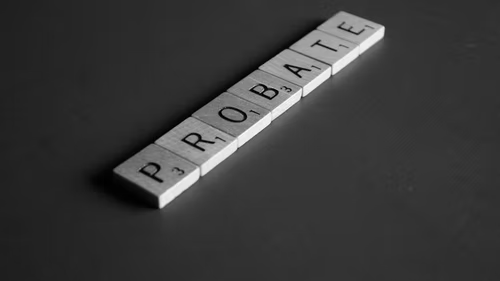When a person dies, their estate (the property and money they leave behind) needs to be dealt with. This can be a complex process, mainly if there is no will in place or if the estate is large or complicated. One of the first steps in dealing with an estate is to obtain a grant of probate. This legal document gives the executor(s) of the will (or next of kin if there is no will) the authority to deal with the deceased’s assets. Applying for a grant of probate can be complex, and it is advisable to seek professional help if you are unsure about anything. The following article provides an overview of a grant of probate and how the process works.
What Is Probate?
Probate is the legal process of dealing with a person’s estate after they die. The primary purpose of probate is to give the executor(s) of the will (or next of kin if there is no will) the authority to deal with the deceased’s assets. This includes collecting all of the deceased’s money and property, paying any debts owed, and distributing the remaining assets to the beneficiaries named in the will.
If there is a will, the executor(s) named are responsible for applying for probate and dealing with the estate. If there is no will, the next of kin will need to apply for probate and deal with the estate. Alternatively, the next of kin can appoint a professional probate service to deal with the estate on their behalf.
Suppose the deceased had set up a trust during their lifetime. In that case, a trust will avoid probate as the trustees named in the trust will be responsible for dealing with the estate, and there is no need to apply for probate. However, this is only possible if all deceased’s assets have been transferred into the trust before they die. If not, then probate will still be required to deal with those assets that are not in the trust.
How Does Probate Work?
Probate can be a complex process, however, with the help of a lawyer, you will have it smooth. The following is a brief overview of the main steps involved in applying for a grant of probate and dealing with an estate:
Apply for a Grant of Probate
The first step in dealing with an estate is applying for a probate grant from the Probate Registry. This legal document gives the executor(s) of the will (or next of kin if there is no will) the authority to deal with the deceased’s assets. Someone over 18 must make the application and either be named an executor in the will or the next of kin. The application can be made online, posted, or in person at the Probate Registry. It is good to get professional help with the application as it can be complex, and strict deadlines must be met.
Collect all of the Deceased’s Assets
Once you have been granted probate, you will need to collect all of the deceased’s assets, including money, property, and possessions. You will also need to pay any debts owed by the estate. This might be a difficult procedure, and it’s a good idea to seek expert assistance if you have any questions. With a good understanding of what is involved, you can ensure that dealing with a deceased’s estate will go as smoothly as possible. Professional help can make all the difference, so don’t hesitate to seek it if you need it.
Pay Any Debts That are Owed
Once you have collected all of the deceased’s assets, you will need to pay any debts that the estate owes. This includes any outstanding bills, mortgages, or other loans. The money to pay these debts will usually come from the deceased’s bank accounts or the sale of their property.
To know about the debts owed, you will need to contact the deceased’s creditors. This can be difficult, as the creditors may be reluctant to give out information about the deceased’s account. However, it is essential to get an accurate picture of the debts that need to be paid to be included in the probate application. The best way to contact the creditors is by writing a letter to them. In the letter, you should have the following information:
- The name and address of the creditor
- The name of the deceased
- The date of death
- The account number or reference number
- The amount of money that is owed
- The type of debt (e.g. mortgage, loan, credit card)
You should also include a copy of the death certificate. Once you have sent the letter, you should wait for a response from the creditor.
Make Sure All Tax is Paid
All of the deceased’s taxes must be paid before any money can be distributed to the beneficiaries. This includes income tax, capital gains tax, and inheritance tax. The amount of tax owed will depend on the estate’s value and the beneficiaries’ circumstances. For example, if the estate is worth more than $9,900 per year (after-tax), or $31.23 an hour (after tax), the beneficiaries will have to pay income tax on the money they receive. The best way to calculate the amount of tax owed is to use a professional service. This will ensure that all correct calculations are made and that the tax is paid on time.
Distribute the Estate to the Beneficiaries
Once all debts are paid, and taxes have been calculated, you can start distributing the estate to the beneficiaries. This is usually done by selling the deceased’s property and distributing the money to the beneficiaries. However, it is also possible to give the beneficiaries specific items from the estate, such as jewelry or furniture. How the estate is distributed will depend on several factors, such as:
- The type of assets that are held in the estate
- The number of beneficiaries
- The wishes of the deceased
- The relationship between the beneficiaries
The probate process can be complex and challenging to understand. However, with a good understanding of what is involved, you can ensure that the process goes smoothly. Professional help can make all the difference, so don’t hesitate to seek it if you need it.
















